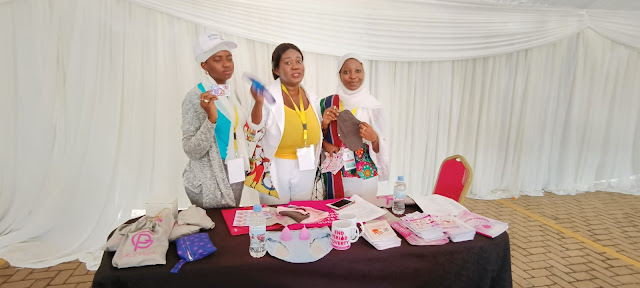REMEMBERING|| Free-Plastic Ocean and Sustainable Fishing: Ocean Campaign with Sofonie Dala, Angola
Promoting Women’s Leadership in Fisheries:
A Campaign with Sofonie Dala - Day 1
Why Focus on Angola?
Angola, a country with vast marine resources, faces significant challenges due to insufficient marine data, a lack of environmental conservation awareness, and limited policies on conservation and fisheries management. These issues disproportionately affect women, who often struggle to access resources and opportunities in this sector.
The idea of promoting women’s leadership in fisheries caught my attention as a critical pathway to economic empowerment and sustainable development. By increasing economic returns for women, improving training and information access, implementing a quota system, and directing financial resources toward female fishers, we can transform the fisheries sector. Empowering women in this field is closely tied to broader issues like access to water, land, credit, technology, and markets.
Our primary challenge today is addressing the question: "How can we make fishing more profitable and sustainable for future generations of fishers?"
In this article, we explore the story of Claudia, an amateur angler from Angola, whose daily struggles shed light on the harsh realities faced by women in this sector.
Claudia's Story: A Struggle for Survival
Claudia is a vulnerable single mother who depends on fishing to support her children. Every day, she faces persecution from state agents—police and inspectors—who prevent her from fishing peacefully. To avoid being caught, Claudia often hides her fishing gear in public trash cans. Despite her efforts, when the authorities find her, they confiscate her catch, leaving her and her children without food. In these moments of desperation, she is forced to beg on the streets to provide for her family.
This is the reality for many women in Angola’s fishing industry—constant harassment, lack of resources, and the struggle to survive.
Interview with Claudia
Interviewer: Good afternoon, ma'am. How are you?
Claudia: Good afternoon, I'm fine, thank you.
Interviewer: What is your name?
Claudia: My name is Claudia.
Interviewer: Claudia, what are you doing here?
Claudia: I fish here.
Interviewer: Are you a fisherwoman?
Claudia: Yes, I'm a fisherwoman in this area, and I also beg here from people who come to relax.
Interviewer: Tell me a little bit about fishing. Did you catch anything today?
Claudia: I haven’t fished yet, but I’m about to. You can watch me.
Interviewer: Did you bring your fishing gear?
Claudia: Yes, I'm ready.
Interviewer: How has fishing been? Is there a lot of fish?
Claudia: There are plenty of fish, but the biggest challenge is the police. We suffer a lot. Every time I come to fish, they tell me to take my line out of the water and order me to go home. When I return home empty-handed, who will feed my children? I am both a mother and father to them. My husband passed away, and the father of my youngest child was abusive, so I left him. Fortunately, some kind-hearted people rented a house for me and my children.
Interviewer: Do you depend on fishing for a living?
Claudia: Yes, fishing is how I survive and support my children.
Interviewer: What materials do you use for fishing?
Claudia: I use a line, bucket, hook, bait, and a drum.
Interviewer: Why do you keep your gear in the garbage bin?
Claudia: To avoid the police throwing it away.
Interviewer: How do you fish?
Claudia: I wrap the line around the hook, put bait on it, and throw it into the sea. When the tide is low, the fish don’t bite. We have to wait until the tide rises. If there are fish, we catch them and put them in the bucket.
Interviewer: If someone offered you sponsorship, what would you need to make fishing easier?
Claudia: I would love to have a net. With a net, I could fish more efficiently. The police forbid us from using nets close to shore, so I would need to go further out to sea.
Interviewer: Would you like to have a canoe?
Claudia: I don’t know how to operate a canoe.
Interviewer: You could hire someone to do it for you.
Claudia: Yes, that’s true.
Interviewer: Is the fishing net expensive?
Claudia: Yes, it’s very expensive. The one I want costs around 30,000 to 25,000 kwanzas.
Conclusion
This article highlights the struggles of fishers in Luanda, Angola, through the lens of Claudia's story. Despite the abundance of fish in the sea, financial constraints and a lack of fishing gear make it difficult for people like Claudia to thrive. The informal fish market remains expensive, as fishers cannot catch large quantities due to resource limitations and constant harassment by authorities.
Moreover, women in the fishing industry are often marginalized, with their roles typically limited to selling fish on the streets rather than leading in the sector. It is crucial to address these challenges and promote women’s leadership in fisheries to create a more equitable and sustainable future.
.jpg)
.jpg)
.webp)

Comments
Post a Comment